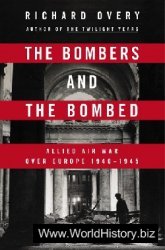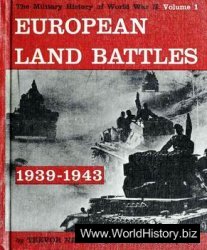Settlers in the Wallowa Valley
Joseph had little time as leader of the Wallowa band before having to face new developments affecting his homeland. When he returned from the lowlands in the spring of 1872, he was surprised to find settlers occupying cabins along the creeks of the Wallowa Mountains. The settlers had arrived to find no one there and claimed the land as their own under the Treaty of 1863, which Lawyer had signed. Joseph, of course, had not signed the treaty and denied that Lawyer had any authority to transfer the Wallowa Valley to anyone.
Joseph and the settlers turned to the local Indian agent, John Monteith. Under President Ulysses S. Grant’s Indian Policy, religious denominations were given jurisdiction over Indians in specific areas, which Grant thought would establish a more congenial form of control than that exercised by the government. Such policy also placed the financial responsibility for overseeing treaties and other Indian issues on the religions rather than on a country still strapped for cash after the Civil War.
However well meaning Monteith was, he had no natural inclination to side with Joseph. The Nez Perce who had converted to Christianity seemed content to accept the treaty and live in peace with the new arrivals. The most that Monteith was willing to push for was peaceful coexistence and a sharing of the valley.
General Oliver Otis Howard
With no definitive solution to the rising tensions between Joseph’s band and the settlers, the government finally became involved in the person of General O. O. Howard, head of the Department of the Columbia. Howard had lost an arm in the Civil War and was a veteran Indian fighter who had brought about a peace agreement with Cochise’s Chiricahua Apaches in the Southwest.
Known as “the Christian General,” Howard was a staunch Presbyterian who saw himself as a man of peace and worked to assist the newly freed slaves during Reconstruction as head of the Freedman’s Bureau. He also helped to establish Howard University in Washington, D. C., after the war to provide educational opportunities for African Americans and served as president of that institution from 1869 to 1874. Howard was no hater of Indians; instead, he viewed himself as a humanitarian. Nonetheless, he subscribed to the common belief that Indians—for their own good, as he saw it—must adopt the dominant values of the United States.
Diplomacy or War
Chief Joseph and General Howard first met in the spring of 1875, a meeting that Howard thought went well. He later wrote, “I think Joseph and I became then quite good friends.”4 Not long afterward, Joseph learned that President Grant, by issuing an executive order opening the Wallowa for new settlements, had withdrawn a concession he made in 1873 when he directed that parts of the Wallowa lands be removed from settlement and serve as a reservation for the Wallowa Nez Perce, with settlers to be compensated for the land that they had settled in the area. That earlier decision, however, had not led to evictions or the prevention of new arrivals.
Joseph responded by calling a council of nontreaty chiefs in the summer of 1875. The major leaders were Joseph, the younger Looking Glass, White Bird, Toohoolhoolzote, and Eagle from the Light. Among the five, only Joseph and Looking Glass argued against war, but the two succeeded in pushing for an attempt to reach a peaceful solution.
Then in the summer of 1876—the same summer when Sitting Bull, Crazy Horse, and their allies were defeating Custer at Little Bighorn—a friend of Joseph’s, We-lot-yah, was apparently murdered by two settlers, Wells McNall and A. B. Findley, in a dispute over horses. Some Nez Perce were ready to meet the killing with violence, but Joseph again worked to keep the peace. Instead, he met with Howard’s representatives and argued that the proper response to the killing of We-lot-yah, described by Joseph as a peaceful man, was to permit the Nez Perce to retain the Wallowa Valley that the death had rendered even more sacred. According to the Report of the Secretary of War, Joseph had argued
That the value of his life could not be estimated; nevertheless, that now, since the murder had been done, since his brother’s life had been taken in Wallowa Valley,
His body buried there, and the earth had drunk up his blood, that the valley was more sacred to him than ever before, and he would and did claim it for the life taken; that he should hold it for himself and his people from this time forward, forever; and that all the whites must be removed from the valley.5
What Joseph was offering, in the most high-minded of terms, was peace in exchange for the right to remain in the Wallowa Valley.
As much as Howard desired a peaceful resolution to the land issue, he would not (likely could not) agree to Joseph’s offer. Howard, still impressed with Joseph, believed that he and his brother, Ollokot, were inclined to move to Lapwai. Working against these accommodations, he thought, were Smoholla and the Dreamers, and their insistence on keeping the land unmolested by cultivation while awaiting a return of their dead ancestors and the expulsion of the intruders.
Later in the summer, when Joseph threatened war if We-lot-yah’s killers were not brought to justice, military officials assured him that the murderers would be dealt with. That justice proved elusive, however, as the two men were found not guilty when no sworn testimony contradicted their claims of self-defense. One explanation for this outcome is that the Nez Perce refused to testify against Findley, whom they liked. A more likely reason for the acquittal is that they were not familiar enough with the U. S. judicial system to use it as effectively as did the defendants, who were facing a jury of settlers, not a Nez Perce jury.
General Howard, meanwhile, became convinced that the only solution to the tensions between Euro-Americans and Nez Perce in the Wallowa Valley was to remove the latter to the Lapwai reservation. Howard summoned Joseph to a meeting at Lapwai in November 1876 and demanded that Joseph and his band accept a move to Lapwai. Not surprisingly, except perhaps to Howard, Joseph refused, declaring that he would never give up his land.
Unwilling to compromise in his determination to force the issue, Howard made plans over the winter to achieve his end by military force. The treaty Nez Perce, hoping to prevent armed conflict, sent a delegation to Joseph in the Imnaha Valley in the far northeastern corner of the current state of Oregon where the Wallowa band was wintering. The delegation unsuccessfully tried to convince Joseph to accept the Lapwai move. While preparing for military action if necessary, Howard also attempted to isolate Joseph by persuading other bands to accept relocation to the Lapwai reservation. These efforts proving largely unproductive, Howard once again planned to meet with Joseph.
Howard Shows the Rifle
Howard was determined to engage in no negotiations but rather to demand once and for all that Joseph yield and accept life at Lapwai. The Nez Perce arrived at Fort Lapwai, which consisted of several buildings surrounding a parade area rather than an enclosed stockade, for the meeting, which began
On Thursday, May 3, 1877. Toohoolhoolzote, an ardent Dreamer who harbored a strong distaste for the Euro-Americans, was chosen to act as spokesman for the nontreaty bands. Howard and Agent Monteith spoke on the first day, and Toohoolhoolzote gave a lengthy speech on the second day about reverencing the land. He also expressed anger about what he interpreted as a condescending attitude on the part of Howard.
Amid rising tensions that Joseph realized could escalate into violence, he proposed a pause in the proceedings. Also sensing the growing hostility, Howard concurred and suggested a weekend postponement. The delay, he knew, would allow the additional troops whom he had requested to arrive. The nontreaty Indians were heavily armed, but the weekend off from negotiations seemed to cool tempers temporarily. Sunday religious services helped, according to Howard, as even the Dreamers engaged enthusiastically in the rituals and songs.
On the following Monday, May 7, Toohoolhoolzote resumed his speech and Howard quickly lost patience. He upbraided the speaker for repeating his comments about the land. The two engaged in an angry exchange, with Toohoolhoolzote complaining that he was not being respected. Howard offered an ultimatum, declaring that the Nez Perce would either accept the reservation or be forced onto it.
Howard then ordered Toohoolhoolzote arrested. When a soldier moved forward to execute the order, he—apparently unintentionally—caused Toohool-hoolzote to fall as he stepped back from the soldier. The incident almost led to violence, but Joseph intervened once again to urge calm. The interruption, threat, and arrest all were major violations of protocol from the Nez Perce perspective, because they occurred in a formal council meeting where they were guests and consequently had left their weapons outside. Thus Howard’s actions amounted to the sort of infraction known as “showing the rifle.”
The council broke up with no agreement. Toohoolhoolzote was released from the guardhouse, and Joseph and White Bird managed to prevent attempts at retribution. Howard, for his part, refused to compromise. He gave the nontreaty bands just 30 days to come into the reservation. Joseph explained that 30 days would not afford his people enough time to gather their horses and cattle and move all of their possessions as well as the elderly, infirm, and young. His remonstrance, however, fell on deaf ears.




 World History
World History









